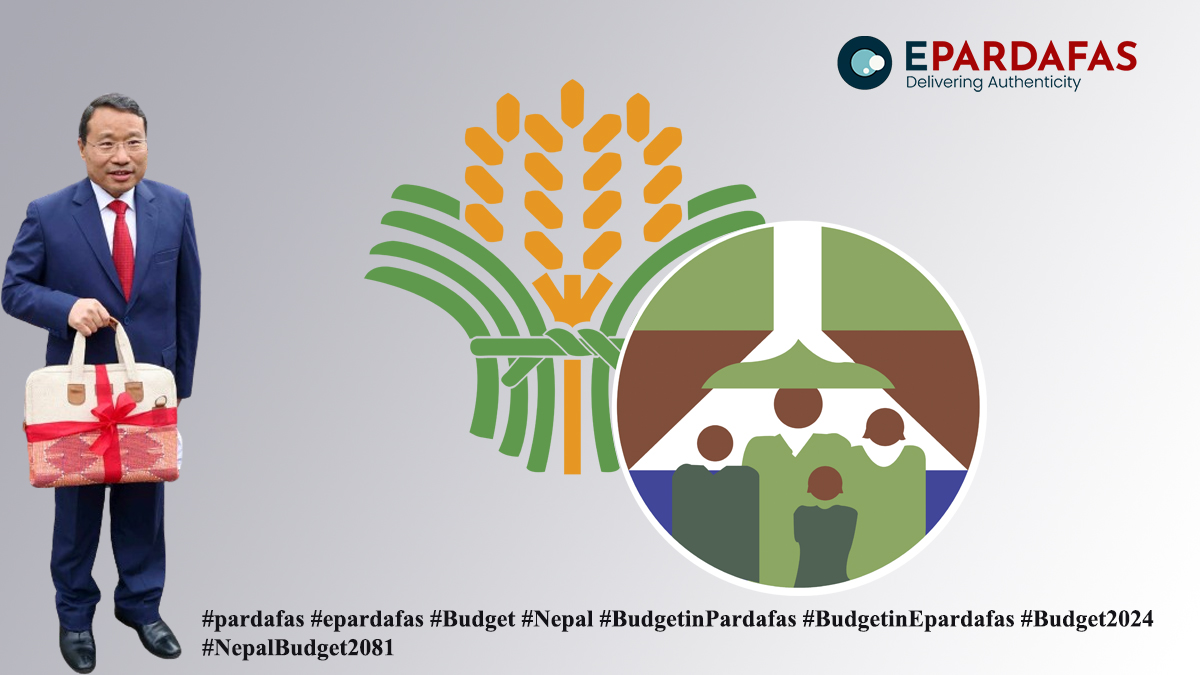
Budget: Nepal’s Vision for ‘Agricultural Investment Decade’

The new fiscal year budget unveiled today has prioritized the agriculture sectors ensuring adequate funds for its development. Accordingly, to increase investment in the agricultural sector, the government has declared the period from 2081 to 2091 BS as the ‘Agricultural Investment Decade’.
In the budget statement for the fiscal year 2024/25 presented by Finance Minister Barshman Pun today in the joint meeting of the Federal Parliament, the ‘Investment Decade in Agriculture’ has been announced to increase investment in the agricultural sector from government, private, cooperative and development partners. Budget for the commercialization and modernization of agriculture is expected to increase production and productivity.
The government has launched a programme to promote contract farming with the participation of the government, farmers and businessmen to ensure fair prices and markets for agricultural products. Farms that collect, process and export agricultural produce, provide fertilizer, seeds and other materials needed by local farmers and ensure that they purchase agricultural products, fertilizers, seeds, agricultural extension services and loan interest subsidies will be provided.
It will be ensured to arrange interest subsidy, technical support and tax exemption on import of equipment for agro-products. Individuals, farms and cooperatives who professionally engage in collective farming, animal husbandry and herb cultivation by consolidating more than 50 ropani in the mountains and hills and 10 bigaha in the plains/tarai will be prioritized. To promote the production of agricultural crops such as fine and lustrous rice, sugarcane, corn, milk, fish, meat, coffee, tea, ginger, turmeric, red chillies, onions, potatoes, etc., the market for the produce will be ensured by providing subsidies for advanced seeds, irrigation etc., reads the budget.
A budget of Rs 2.98 billion has been allocated for the Prime Minister’s Agriculture Modernization Project. Fruit cultivation will be expanded on two thousand hectares of land in hilly and high mountain areas. In the next fiscal year, the capacity of 14 government farms will be expanded to produce at least seven hundred thousand quality fruit plants. A state-of-the-art laboratory will be established to produce plants using tissue culture technology.
For development of fruit farming sector, Rs. 1.44 billion have been allocated. A special programme will be conducted to promote the production and export of the national fruit orange in the central mountains, apples in the Himalayas and high mountains, and mangoes and bananas in Tarai-Madhesh in collaboration with the federal, provincial and local levels.
For the commercialization of agriculture, the government will provide initial capital to 300 highway-focused production businesses and ensure the market for the produced goods. One billion 120 million rupees have been allocated for this.
To encourage farmers to promote sugarcane cultivation, Rs. 2.25 billion has been allocated. A total of 1.65 billion rupees have been set aside to provide subsidy on crop and livestock insurance premiums for small farmers. The government has also launched a programme to enhance the capacity of agencies involved in agricultural research, including the National Agricultural Research Council.
Similarly, 75 more agricultural technologies will be developed in the next fiscal year. Three billion 52 million rupees have been allocated for agricultural research and development.
Meanwhile, necessary legal provision for the commercial production of marijuana for medicinal purposes will be arranged.












Comments